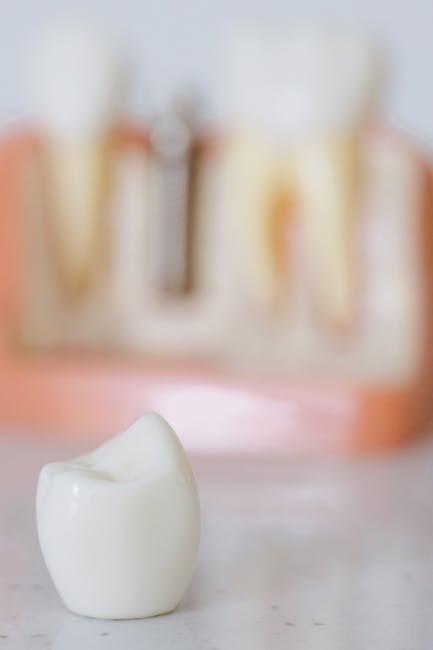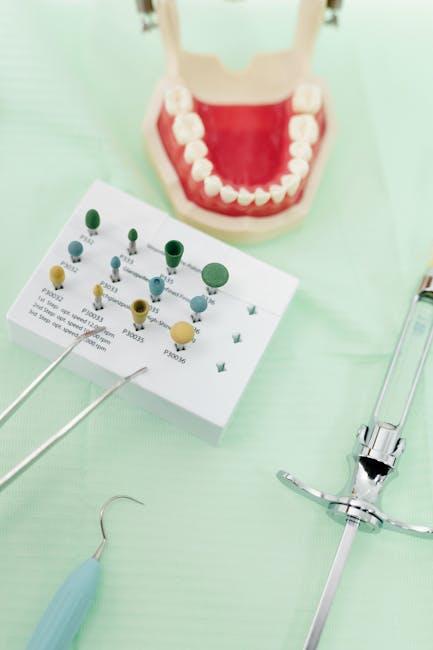
‘Smart’ Dental Implants Developed That Feel and Function Like Natural Teeth
In a groundbreaking development unveiled by Medical Xpress, scientists have created ‘smart’ dental implants engineered to mimic the feel and function of natural teeth. This innovative advancement stands to revolutionize dental care, offering patients an improved quality of life through implants that restore not only the structure but also the sensory feedback lost with traditional implants.
Introduction to Smart Dental Implants
Traditional dental implants, while highly effective at replacing missing teeth, lack the ability to replicate the natural sensory experience of real teeth. This deficiency often results in reduced bite force awareness, difficulty in adjusting chewing pressure, and an unnatural feeling that affects overall oral comfort. The newly developed smart dental implants address these challenges by integrating sensor technology and bioengineering, bringing a new era of personalized dental restoration.
What Are ‘Smart’ Dental Implants?
Smart dental implants are advanced prosthetic teeth equipped with embedded sensors and biomimetic materials that allow them to:
- Detect pressure and force applied during chewing
- Transmit sensory information to the brain, mimicking natural tooth sensation
- Adapt to different bite pressures for enhanced functionality
- Improve integration with jawbone and gum tissues to reduce inflammation
This combination of technology and biology results in an implant that feels and functions strikingly similar to natural teeth.
Key Benefits of Smart Dental Implants
Here are the most significant benefits that come with adopting smart dental implants for tooth replacement:
- Enhanced Sensory Feedback: Allows for better bite force regulation preventing overloading and potential damage.
- Improved Oral Comfort: Patients experience a natural sensation, reducing discomfort associated with traditional implants.
- Better Chewing Efficiency: Adapts to various food textures improving overall chewing performance and digestion.
- Longevity and Health: Sensor feedback can help monitor implant condition, reducing risks of failure or injury.
- Reduced Bone Loss: Natural stimulation helps maintain jawbone density and health.
Innovative Technology Behind the Smart Implants
The success of smart dental implants hinges on the integration of cutting-edge materials and bioengineering techniques:
1. Nano-sensors Embedded in the Implant
Ultra-small pressure sensors integrated into the implant’s surface can detect mechanical forces and send signals mimicking the periodontal ligament’s function in natural teeth.
2. Biocompatible Materials
Smart implants use titanium alloy combined with biomaterials that encourage bone cell growth and minimize immune rejection.
3. Wireless Data Transmission
Innovative wireless microchips communicate sensory data to the nervous system, enabling real-time feedback for patients.
4. Adaptive Algorithms
Artificial intelligence algorithms analyze sensory data to adjust bite force and alert patients or dentists about possible issues.
Case Study: Patients’ First-Hand Experiences
Several patients who participated in clinical trials have provided insights into living with smart implants:
| Patient | Age | Experience | Outcome |
|---|---|---|---|
| Emily S. | 45 | Reported natural biting sensation and comfort within weeks | Improved eating habits, no discomfort |
| Mark J. | 52 | Noted enhanced chewing efficiency and reduced jaw soreness | Better oral health monitoring capability |
| Rita L. | 38 | Experienced quick adaptation and confidence in social settings | Boosted self-esteem and lifestyle quality |
Practical Tips for Maintaining Your Smart Dental Implants
To maximize the benefits of your smart dental implants and guarantee their longevity, these essential tips are recommended:
- Maintain excellent oral hygiene: Brush and floss daily to prevent gum disease and infections.
- Regular dental check-ups: Schedule visits every 6 months for professional cleaning and implant monitoring.
- Monitor changes: Pay attention to any unusual sensations or discomfort and inform your dentist immediately.
- Avoid hard or sticky foods: Protect your implants from undue stress during the healing phase.
- Use recommended cleaning tools: Employ interdental brushes or water flossers for gentle maintenance.
Future Implications of Smart Dental Implants
The creation of smart dental implants marks a significant step forward in dental prosthetics. Future possibilities include:
- Integration with health apps: Real-time oral health monitoring accessible through smartphones.
- Personalized implant adjustments: AI-powered customization based on individual habits and anatomy.
- Wider availability and affordability: As technology advances, smart implants may become mainstream solutions.
- Prevention of oral diseases: Early detection of infections or implant failures via embedded sensors.
Conclusion
Smart dental implants developed to feel and function like natural teeth represent a remarkable advancement in dental technology, delivering unprecedented comfort, sensory restoration, and health benefits. By combining nano-sensors, biocompatible materials, and AI, these implants are paving the way for a future where losing a tooth does not mean losing natural function. Patients worldwide can soon expect dental implants that not only restore their smile aesthetically but also fully reinstate the natural experience of their teeth—improving quality of life and oral health long term.
If you’re considering dental implants, stay informed about the latest smart technologies and consult your dental professional about cutting-edge options that might be right for you.


